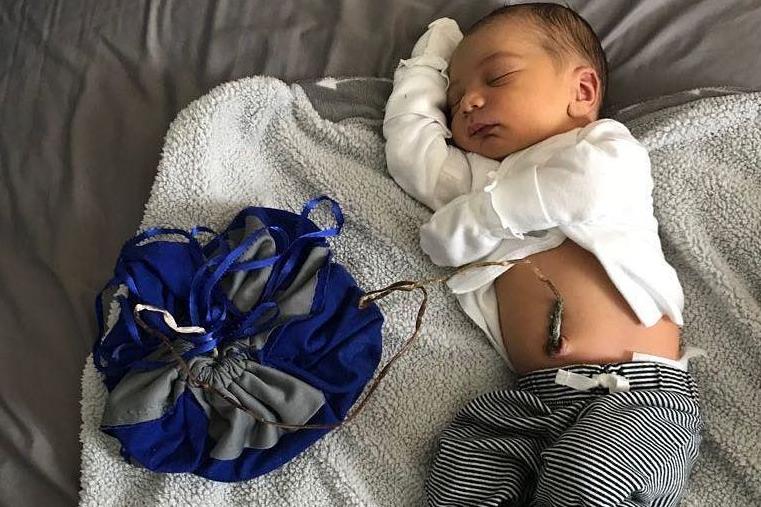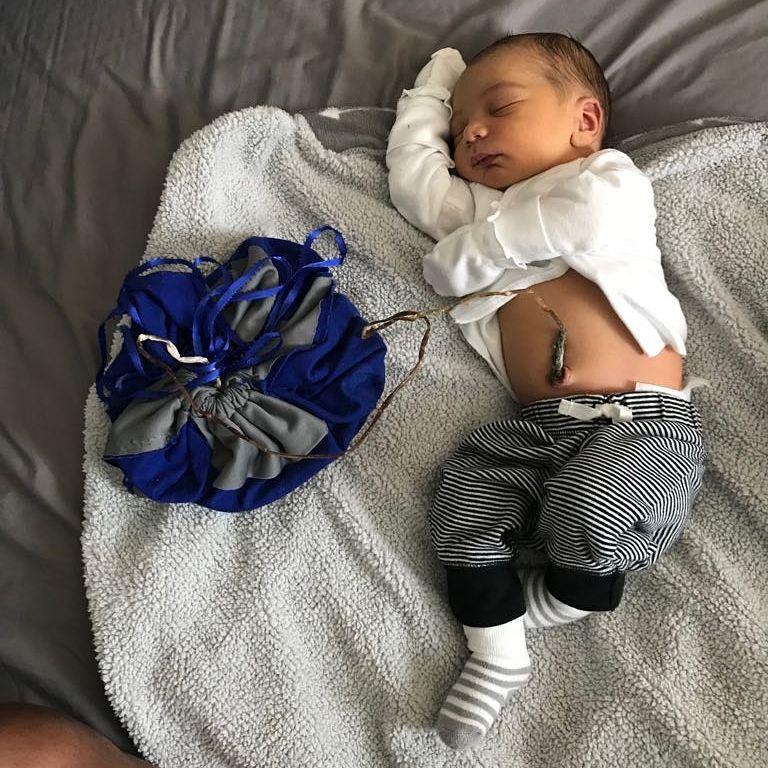Couple chose to have lotus birth - meaning they have kept newborn's placenta attached
'Nature does not hurry, yet everything is accomplished'

When parents Nick and Vanessa Fisher gave birth to their newborn son, Ashton, they decided to not to cut the cord.
Choosing to have a completely natural birth at their home, the couple took it one step further and opted for a lotus birth - meaning they never severed the umbilical cord on their new baby.
Updating their friends and family on Facebook about baby Ashton’s progress, the couple wrote that as of day four, his umbilical cord was still attached.
With a lotus birth, parents keep the umbilical cord attached until it breaks away from the infant naturally, which can take days - rather than cutting the cord while it still may be transferring blood and nutrients.
According to Vanessa, the idea for the lotus birth came to her while researching cord blood options.
After discovering that many mothers keep the cord attached for several hours after birth to allow the blood to stop flowing, and ensure “full placental blood transfer to baby,” she discovered lotus births - an idea that resonated with her.
She said: “After birth, the baby normally is taken from the womb and separated from his cord and placenta -- a series of events that I imagine could be emotionally traumatic for baby. A gradual separation from the umbilical cord and placenta seems more emotionally considerate of the baby.”

And “in the time that the cord is naturally detaching and the placenta is completing its job providing nutrients and blood to the baby, the baby has time to establish a new bond and dependency on the father.”
For baby Ashton’s placenta, Vanessa’s cousin created a stylish placenta bag after realising placenta bags sold on Etsy would take too long to arrive - and although “it has been a bit more maintenance,” the new mum says it is “well worth it for my child’s well being.”
And “outside of the initial washing, drying, and curing of the placenta, there isn’t much maintenance required,” she said.
In order to prepare Ashton’s placenta once he was born, the couple washed it with water and then covered it in astringent herbs including yarrow, witch-hazel, lavender, rosemary, rosebuds, and sea salt.
According to Vanessa, “the herbs masked any odour.”
Although the practice of a lotus birth is unorthodox, it has also risen in popularity in recent years.
And Vanessa and Nick wrote on Facebook that “Emotionally lotus birthed babies tend to be more serene and peaceful.”
However, while there are no scientifically-backed findings that suggest keeping a placenta attached at birth has any positive impacts, some doctors do advise against lotus births.
Dr William Schweizer, an ob-gyn at New York University Langone Medical Center, told Live Science: “The placenta is dead tissue, and because of this, the blood in it is prone to bacterial overgrowth” and risks mostly “center around a concern for infection in the placenta, which can spread to the baby.”
But the new parents think most of the reluctance to the idea of lotus births is because “Unorthodox is difficult for people to conceptualize, we are so accustomed to the limitations of western medicine, we stick to what we know without much consideration for the alternative."
When baby Ashton’s placenta does detach naturally, the couple plans to bury it.
Join our commenting forum
Join thought-provoking conversations, follow other Independent readers and see their replies
Comments